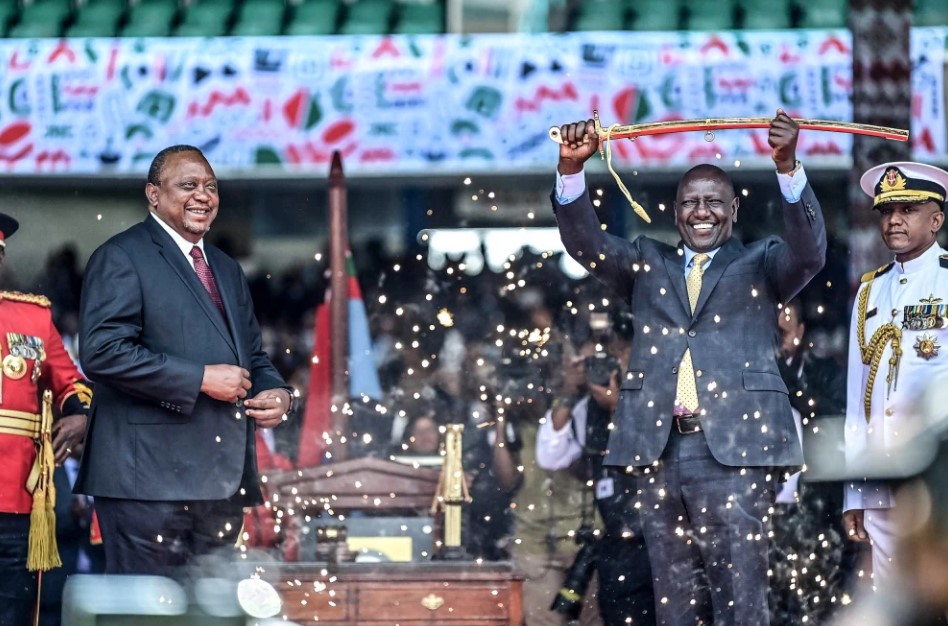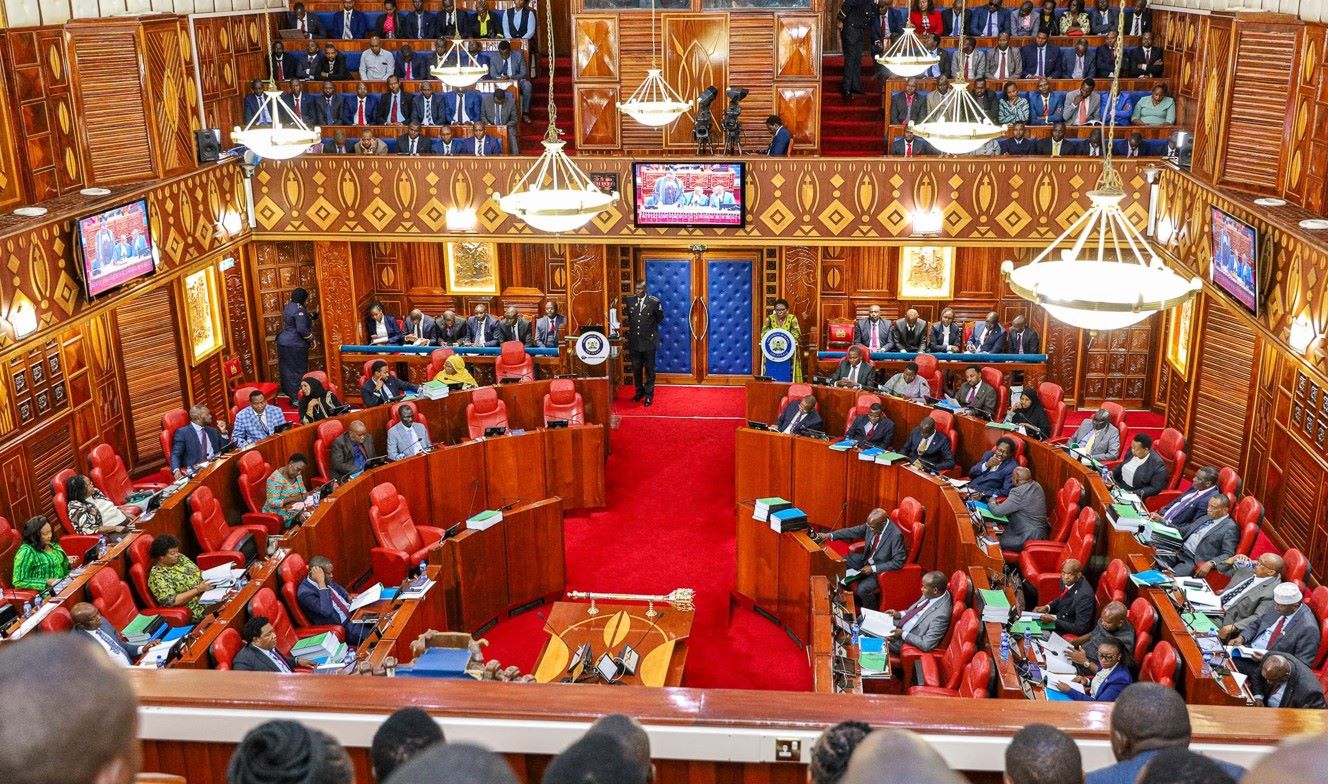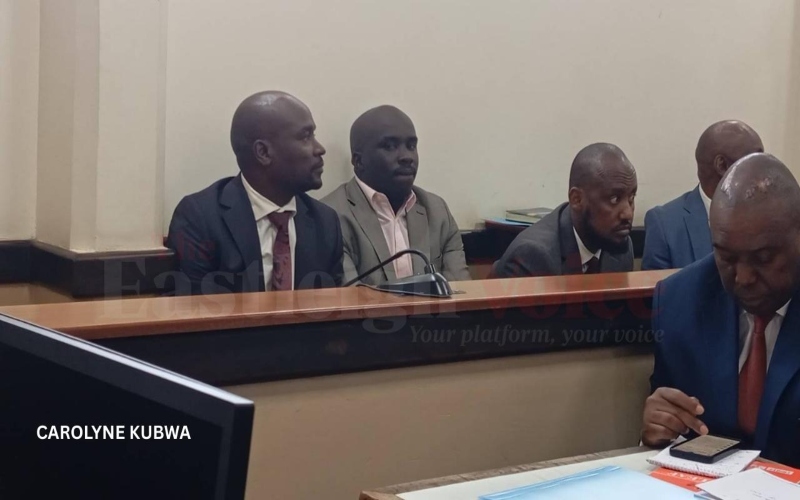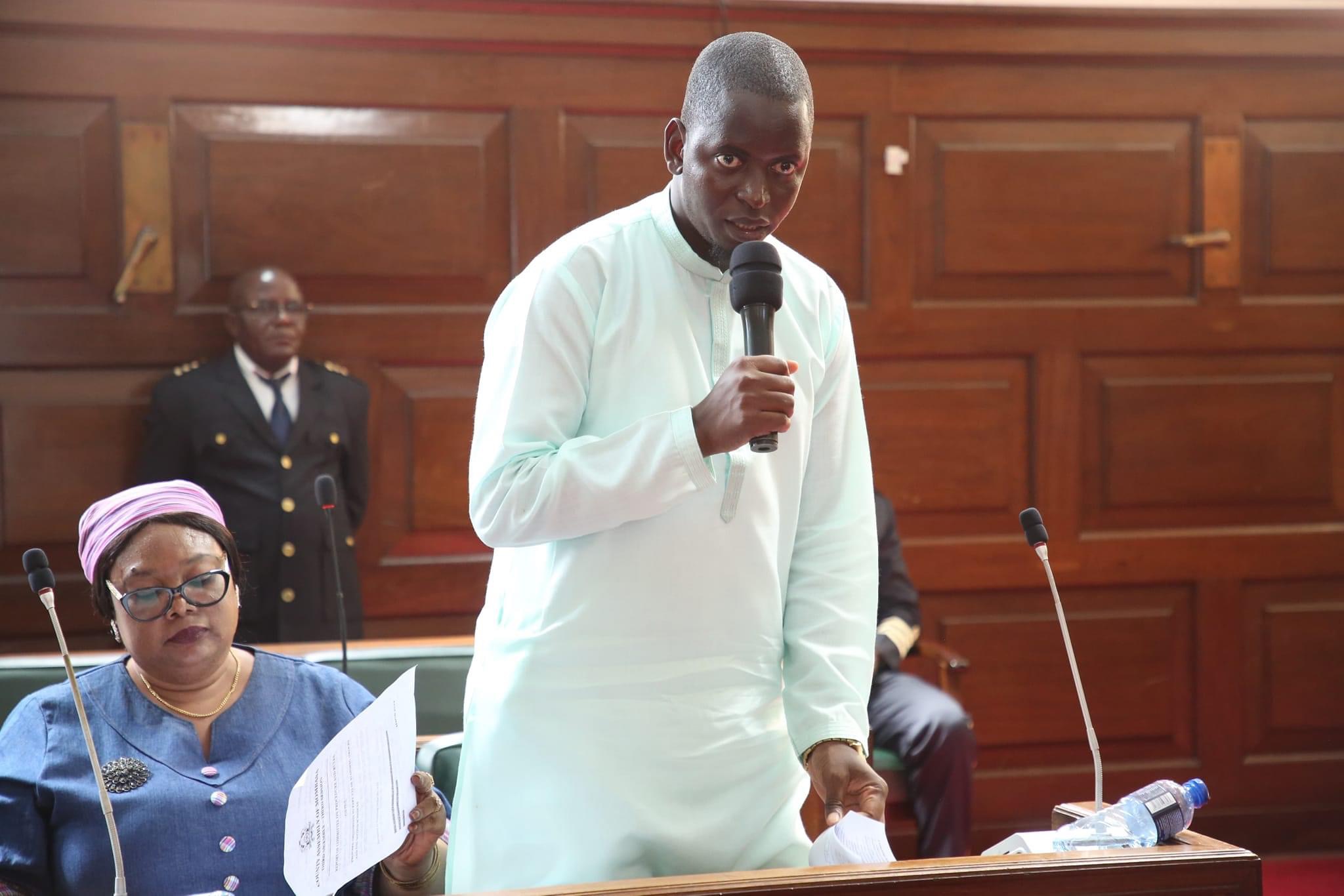New Bill proposes to extend President, lawmakers' term to seven years

This proposed law sponsored by Nandi Senator Samson Cherargei aims to increase the terms of service for the President, Members of Parliament (MPs), Members of County Assemblies (MCAs), and governors to seven years.
A new Bill seeking to extend the terms of the President and all elected leaders from five to seven years has been published.
This proposed law sponsored by Nandi Senator Samson Cherargei aims to increase the terms of service for the President, Members of Parliament (MPs), Members of County Assemblies (MCAs), and governors to seven years. Currently, Kenyans elect their leaders every five years.
More To Read
- Hussein Khalid: Police brutality, rights violations persist 15 years after 2010 Constitution
- President Ruto declares August 27 Katiba Day to commemorate 2010 Constitution
- Explainer: What is anticipatory bail and when should it be granted?
- Why Opposition’s parallel tribunal aimed at tackling State injustice is within legal bounds -expert
- Why I am best suited to lead Kenya - former CJ David Maraga
- PS Bitok: State to hasten processing of dual citizenship requests for Kenyan diaspora
The Constitution of Kenya (Amendment) Bill, 2024, is set for its first reading in the Senate.
"The bill proposes to amend Article 136 of the Constitution, which provides for the election of the President, to increase the term of President from five years to seven years," reads part of the Bill.
It also amends Articles 101, 177, and 180 to extend the terms of MPs, senators, MCAs, and governors.
Discussions around constitutional amendments began in November 2022 when a UDA legislator proposed removing the presidential term limit.
Fafi MP Salah Yakub suggested replacing it with an age limit of 75 years, but this proposal did not gain traction.
The Constitution currently limits the presidential term to two five-year terms.
Additionally, the bill introduces the office of the Prime Minister, mirroring proposals made in the National Dialogue Committee and the Building Bridges Initiative reports.
The bill states that the President shall appoint the Prime Minister from among members of Parliament, specifying, "The Prime Minister shall be the leader of the largest party or coalition of parties in Parliament."
To enhance the Senate's powers, the bill assigns it the exclusive mandate to vet certain state officers.
"This bill therefore seeks to increase the parliamentary role of the Senate by addressing the issues that have hampered the implementation of the constitution," the Bill reads in part.
Limited role
The Senate has often been perceived as having a limited role compared to the National Assembly.
 Meru Governor when she appeared before the Senate during her impeachment hearing last year. (Photo: Senate Kenya)
Meru Governor when she appeared before the Senate during her impeachment hearing last year. (Photo: Senate Kenya)
Specifically, the bill proposes amendments to Articles 152, 156, 157, 166, 215, 228, 229, 245, and 250.
This will allocate the responsibility of approving the appointment of various state officers between the Senate and the National Assembly.
Under the new proposal, the Senate will vet and approve appointments for Cabinet secretaries, the Attorney General, the Director of Public Prosecutions, the Chief Justice, and judges, as well as for the chairperson of the Commission on Revenue Allocation, the Controller of Budget, the Auditor General, members of the Public Service Commission, the Inspector General of Police, and members of constitutional commissions.
Currently, these state officers are vetted solely by the National Assembly. The bill also amends Article 229 to ensure that the Auditor General submits annual expenditure estimates directly to Parliament for approval.
While the Senate gains new responsibilities, the National Assembly will maintain its role in vetting high commissioners, ambassadors, and diplomatic representatives.
The proposal designates the Senate as the appropriate forum for filing petitions to remove members of constitutional commissions or independent officeholders, a shift from the current process that relies on the National Assembly.
"The principal object of the Constitution of Kenya (Amendment) Bill, 2024, is to amend the Constitution to, among others, expand the mandate of the Senate," the proposed law reads.
Moreover, the bill seeks to amend Article 58 to require involvement from both the Senate and the National Assembly when approving an extension of a state of emergency.
It emphasises that "a state of emergency affects the stability and functioning of the nation as a whole including county governments,"
Furthermore, both Houses of Parliament must now approve the deployment of the Kenya Defence Forces in any part of the country, a process that is currently approved solely by the National Assembly.
The bill also proposes that any legislation, except for money bills, which must originate in the National Assembly can start in either House of Parliament.
Additionally, it aims to amend Article 181 of the Constitution regarding the procedures for the removal of a county governor or deputy governor.
Under this proposal, any challenge to a governor's impeachment by the Senate can only be addressed at the Supreme Court, which must resolve the case within 30 days.
Presently, such matters begin at the High Court.
The proposed legislation increases the percentage of the equitable share of revenue allocated to counties from the current 15 per cent to 40 per cent.
"The bill seeks to strengthen devolution by aligning the roles and functions of Parliament and all entities at the national and county levels of government in a manner that would promote the effective administration of the devolved system of governance," the proposed law reads.
Top Stories Today












































